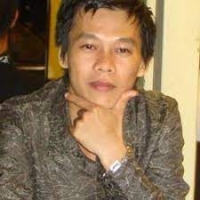Piano Sheet Music
 "People whose sensibility is destroyed by music in trains, airports, lifts, cannot concentrate on a Beethoven Quartet." Witold Lutoslawski
"People whose sensibility is destroyed by music in trains, airports, lifts, cannot concentrate on a Beethoven Quartet." Witold Lutoslawski
Tony Banks

Anthony George Banks (born 27 March 1950) is an English musician, songwriter and film composer primarily known as the keyboardist and founding member of the rock band Genesis. Banks is also a prolific solo artist, releasing six solo albums that range through progressive rock, pop, and classical music.Banks co-formed Genesis in 1967 while studying at Charterhouse as their keyboardist and one of their principal songwriters and lyricists. He became a prolific user of the Hammond T-102 organ, Mellotron, ARP Pro Soloist and Yamaha CP-70 piano. In the band's earliest years Banks would play acoustic guitar for some of the mellow and pastoral songs.
Taras Yachshenko

Tara Yachshenko ukrainian musician classical pianist, there are many classical music works.
Traditional

Billie Holiday
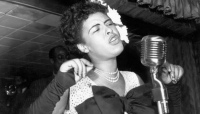
Billie Holiday, American singer, songwriter, composer. Nicknamed "Lady Day", Billie Holiday is the daughter of a traveling musician father. His childhood, deprived of education, included a poor life. She was raped at the age of 11 and was given boarding at a Catholic school.
Marvin Hamlisch
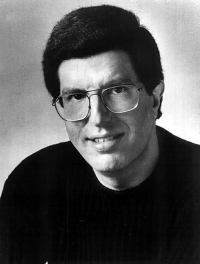
Marvin Frederick Hamlisch (June 2, 1944 – August 6, 2012) was an American composer and conductor. Hamlisch was one of only sixteen people to win Emmy, Grammy, Oscar and Tony awards. This collection of all four is referred to as an "EGOT". He is one of only two people (along with composer Richard Rodgers) to have won those four prizes and a Pulitzer Prize ("PEGOT").
Paco Viciana
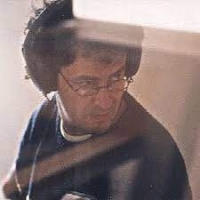
Paco Viciana Musical artist Songs El Més Fort Dones D'aigua · 2002 Serres Nues i Agudes Les 4 Estacions a Catalunya · 2015 Goges Dones D'aigua · 2002
Grieg

Edvard Hagerup Grieg (/ɡriːɡ/ GREEG, Norwegian: ; 15 June 1843 – 4 September 1907) was a Norwegian composer and pianist. He is widely considered one of the leading Romantic era composers, and his music is part of the standard classical repertoire worldwide. His use and development of Norwegian folk music in his own compositions brought the music of Norway to international consciousness, as well as helping to develop a national identity, much as Jean Sibelius and Bedřich Smetana did in Finland and Bohemia, respectively.
Grieg is the most celebrated person from the city of Bergen, with numerous statues depicting his image, and many cultural entities named after him: the city's largest concert building (Grieg Hall), its most advanced music school (Grieg Academy) and its professional choir (Edvard Grieg Kor). The Edvard Grieg Museum at Grieg's former home, Troldhaugen, is dedicated to his legacy.
Grieg is the most celebrated person from the city of Bergen, with numerous statues depicting his image, and many cultural entities named after him: the city's largest concert building (Grieg Hall), its most advanced music school (Grieg Academy) and its professional choir (Edvard Grieg Kor). The Edvard Grieg Museum at Grieg's former home, Troldhaugen, is dedicated to his legacy.
Yvonne Catterfeld

Yvonne Catterfeld is a German singer, actress, and television personality. Born and raised in Erfurt, Thuringia, she later moved to Leipzig to pursue her career in music. In 2000, she participated in the debut season of the singing competition series Stimme 2000, where she came in second place.
A Fine Frenzy

Alison Sudol (born December 23, 1985), known professionally as A Fine Frenzy (formerly Alison Monro She has also been very successful in the charts in Germany, Austria, Switzerland, Poland and France - amongst other countries. Her music has also been featured on numerous television shows as well as having a song on the drama movie Sleepwalking, starring Charlize Theron, Nick Stahl and child actress AnnaSophia Robb.
Astor Piazzolla

Ástor Pantaleón Piazzolla (March 11, 1921 – July 4, 1992) was an Argentine tango composer and bandoneón player. His oeuvre revolutionized the traditional tango into a new style termed nuevo tango, incorporating elements from jazz and classical music. An excellent bandoneonist, he regularly performed his own compositions with different ensembles.
Piazzolla's nuevo tango was distinct from the traditional tango in its incorporation of elements of jazz, its use of extended harmonies and dissonance, its use of counterpoint, and its ventures into extended compositional forms. As Argentine psychoanalyst Carlos Kuri has pointed out, Piazzolla's fusion of tango with this wide range of other recognizable Western musical elements was so successful that it produced a new individual style transcending these influences. It is precisely this success, and individuality, that makes it hard to pin down where particular influences reside in his compositions, but some aspects are clear. The use of the passacaglia technique of a circulating bass line and harmonic sequence, invented and much used in 17th and 18th century baroque music but also central to the idea of jazz "changes", predominates in most of Piazzolla's mature compositions. Another clear reference to the baroque is the often complex and virtuosic counterpoint that sometimes follows strict fugal behavior but more often simply allows each performer in the group to assert his voice. A further technique that emphasises this sense of democracy and freedom among the musicians is improvisation that is borrowed from jazz in concept, but in practice involves a different vocabulary of scales and rhythms that stay within the parameters of the established tango sound-world. Pablo Ziegler has been particularly responsible for developing this aspect of the style both within Piazzolla's groups and since the composer's death.
Piazzolla's nuevo tango was distinct from the traditional tango in its incorporation of elements of jazz, its use of extended harmonies and dissonance, its use of counterpoint, and its ventures into extended compositional forms. As Argentine psychoanalyst Carlos Kuri has pointed out, Piazzolla's fusion of tango with this wide range of other recognizable Western musical elements was so successful that it produced a new individual style transcending these influences. It is precisely this success, and individuality, that makes it hard to pin down where particular influences reside in his compositions, but some aspects are clear. The use of the passacaglia technique of a circulating bass line and harmonic sequence, invented and much used in 17th and 18th century baroque music but also central to the idea of jazz "changes", predominates in most of Piazzolla's mature compositions. Another clear reference to the baroque is the often complex and virtuosic counterpoint that sometimes follows strict fugal behavior but more often simply allows each performer in the group to assert his voice. A further technique that emphasises this sense of democracy and freedom among the musicians is improvisation that is borrowed from jazz in concept, but in practice involves a different vocabulary of scales and rhythms that stay within the parameters of the established tango sound-world. Pablo Ziegler has been particularly responsible for developing this aspect of the style both within Piazzolla's groups and since the composer's death.
John Scofield
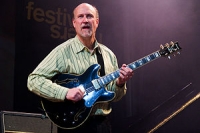
John Scofield (born December 26, 1951), sometimes referred to as "Sco", is an American jazz-rock guitarist and composer whose music includes bebop, jazz fusion, funk, blues, soul, and rock. He has worked with Miles Davis, Dave Liebman, Joe Henderson, Charles Mingus, Joey DeFrancesco, Herbie Hancock, Eddie Palmieri, Pat Metheny, Bill Frisell, Joe Lovano, Pat Martino, Mavis Staples, Phil Lesh, Billy Cobham, Medeski Martin & Wood, George Duke, Jaco Pastorius, John Mayer, Robert Glasper, and Gov't Mule.
The Corrs

The Corrs are a Celtic folk rock group from Dundalk, County Louth, Ireland. The group consists of the Corr siblings: Andrea (vocals, tin whistle); Sharon (violin, vocals); Caroline (drums, percussion, bodhrán, vocals); and Jim (guitar, keyboards, vocals).
The Corrs came to international prominence with their performance at the 1996 Summer Olympics in Atlanta, Georgia. Since then, they have released five studio albums and numerous singles, which have reached platinum in many countries. Talk on Corners, their most successful album to date, reached multi-platinum status in Australia and the UK.
The Corrs have been actively involved in philanthropic activities. They have performed in numerous charity concerts such as the Prince's Trust in 2004 and Live 8 alongside Bono in 2005. The same year, they were awarded honorary MBEs for their contributions to music and charity. The Corrs are on hiatus because Sharon, Jim, and Caroline are raising families, while Andrea is pursuing a solo career.
The Corrs came to international prominence with their performance at the 1996 Summer Olympics in Atlanta, Georgia. Since then, they have released five studio albums and numerous singles, which have reached platinum in many countries. Talk on Corners, their most successful album to date, reached multi-platinum status in Australia and the UK.
The Corrs have been actively involved in philanthropic activities. They have performed in numerous charity concerts such as the Prince's Trust in 2004 and Live 8 alongside Bono in 2005. The same year, they were awarded honorary MBEs for their contributions to music and charity. The Corrs are on hiatus because Sharon, Jim, and Caroline are raising families, while Andrea is pursuing a solo career.
Assassin's Creed
Assassin's Creed II is a 2009 action-adventure video game developed by Ubisoft Montreal and published by Ubisoft. It is the second major installment in the Assassin's Creed series, a sequel to 2007's Assassin's Creed. The game was first released on the PlayStation 3 and Xbox 360 in November 2009, and was later made available on Microsoft Windows in March 2010 and OS X in October 2010. Several minor game related features could be redeemed on Uplay and three downloadable expansion packs were released on Xbox Live.
Fred Johnny Berg
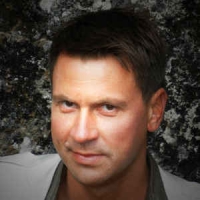
Flint Juventino Beppe (born May 27, 1973), formerly known as Fred Jonny Berg, is a Norwegian-born German composer, filmmaker, artist and producer.Beppe’s catalogue of works comprises about 200 titles, more than 80 opuses, including commissions and works for piano, flute, clarinet, violin, viola, cello, double bass, string orchestra and orchestral works like flute concertos, piano concertos, symphonic poems and a symphony.
He has collaborated with the Philharmonia Orchestra, Emily Beynon, Sir James Galway and Vladimir Ashkenazy. Beppe is a member of Deutscher Komponistenverband (German Composers Association).
He has collaborated with the Philharmonia Orchestra, Emily Beynon, Sir James Galway and Vladimir Ashkenazy. Beppe is a member of Deutscher Komponistenverband (German Composers Association).
Moritz Moszkowski
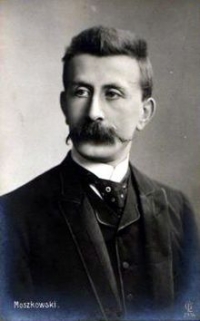
Moritz (Maurice) Moszkowski (23 August 1854 – 4 March 1925) was a German composer, pianist, and teacher of Polish descent. Ignacy Paderewski said, "After Chopin, Moszkowski best understands how to write for the piano". Although little known today, Moszkowski was well-respected and popular during the late nineteenth century.
His music is brilliant, but has also been described as "devoid of the masculine and the feminine". He wrote over two hundred small-scale piano pieces, which brought him much popularity – notably his set of Spanish Dances, Op. 12, for piano duet (later arranged for solo piano, and for orchestra ). His early Serenade, Op. 15, was world-famous and appeared in many guises, including the song Liebe, kleine Nachtigall. Today he is probably best known for his fifteen Études de Virtuosité, Op. 72, which have been performed by virtuoso pianists such as Vladimir Horowitz and Marc-André Hamelin. Surprisingly, their first complete recording was not until 1970 (by Ilana Vered). Many of his small but brilliant piano pieces, such as Étincelles (Sparks), are used as encore performances at the end of classical concerts.
He also wrote larger scale works including the Piano Concerto in E major, Op. 59 (1898), the Violin Concerto in C major, Op. 30, three orchestral suites (Opp. 39, 47, 79), and a symphonic poem Jeanne d'Arc, Op. 19.
He wrote the opera Boabdil der letzte Maurenkönig, Op. 49, on the historical theme of the capture of Granada. It was premiered at the Berlin Court Opera on 21 April 1892, and appeared in Prague and New York the following year. It did not stay in the repertoire, but its ballet music was very popular for a number of years. He wrote a three-act ballet Laurin in 1896.
His music is brilliant, but has also been described as "devoid of the masculine and the feminine". He wrote over two hundred small-scale piano pieces, which brought him much popularity – notably his set of Spanish Dances, Op. 12, for piano duet (later arranged for solo piano, and for orchestra ). His early Serenade, Op. 15, was world-famous and appeared in many guises, including the song Liebe, kleine Nachtigall. Today he is probably best known for his fifteen Études de Virtuosité, Op. 72, which have been performed by virtuoso pianists such as Vladimir Horowitz and Marc-André Hamelin. Surprisingly, their first complete recording was not until 1970 (by Ilana Vered). Many of his small but brilliant piano pieces, such as Étincelles (Sparks), are used as encore performances at the end of classical concerts.
He also wrote larger scale works including the Piano Concerto in E major, Op. 59 (1898), the Violin Concerto in C major, Op. 30, three orchestral suites (Opp. 39, 47, 79), and a symphonic poem Jeanne d'Arc, Op. 19.
He wrote the opera Boabdil der letzte Maurenkönig, Op. 49, on the historical theme of the capture of Granada. It was premiered at the Berlin Court Opera on 21 April 1892, and appeared in Prague and New York the following year. It did not stay in the repertoire, but its ballet music was very popular for a number of years. He wrote a three-act ballet Laurin in 1896.
Michael Buble

Michael Steven Bublé (born 9 September 1975) is a Canadian big band singer. He won several awards, including a Grammy and multiple Juno Awards. While achieving modest chart success in the United States, his 2003 self-titled album has reached the top ten in Lebanon, the UK and his home country. However, he did find commercial success in the U.S. with his 2005 album It's Time. He has sold over 18 million albums. Michael has also appeared on the TV series Rove four times.
The album Michael Bublé was released by Warner Bros. Records just before Valentine's Day in 2003. The album was actually first released by the Warner company in South Africa, where the album went into the Top 5 and was certified Gold. Soon after that, it entered the Canadian album charts. As success in the USA was marginal at best, Bublé started visiting countries all over the world, with the album being successful in places like the Philippines and Singapore. He then moved on to placed like Italy and eventually had chart success in the UK, U.S., Australia and elsewhere soon followed with the album going Platinum and reaching the top ten of the album charts in the UK and Canada and going all the way to #1 in Australia. The album has reached the top 50 of the Billboard 200 album charts in the U.S. His version of George Michael's "Kissing a Fool" was released as a single from the album and reached the top 30 of the Billboard Hot Adult Contemporary Tracks chart. "How Can You Mend a Broken Heart?" reached the top 30 of the Billboard Adult Contemporary chart as well. His third single "Sway" also reached the top 30 of the Adult Contemporary chart, while a Junkie XL remix of the song reached the top 20 in Australia in May 2004.
Bublé's second studio album, It's Time, debuted as a hugely successful performance. The album reached number 7 on the Billboard 200 album chart and number 2 on the ARIA Album Charts in Australia. It's Time also debuted at number 4 on the UK Album Charts. The album features covers of Beatles and Ray Charles songs, and the hit single "Home".
The album Michael Bublé was released by Warner Bros. Records just before Valentine's Day in 2003. The album was actually first released by the Warner company in South Africa, where the album went into the Top 5 and was certified Gold. Soon after that, it entered the Canadian album charts. As success in the USA was marginal at best, Bublé started visiting countries all over the world, with the album being successful in places like the Philippines and Singapore. He then moved on to placed like Italy and eventually had chart success in the UK, U.S., Australia and elsewhere soon followed with the album going Platinum and reaching the top ten of the album charts in the UK and Canada and going all the way to #1 in Australia. The album has reached the top 50 of the Billboard 200 album charts in the U.S. His version of George Michael's "Kissing a Fool" was released as a single from the album and reached the top 30 of the Billboard Hot Adult Contemporary Tracks chart. "How Can You Mend a Broken Heart?" reached the top 30 of the Billboard Adult Contemporary chart as well. His third single "Sway" also reached the top 30 of the Adult Contemporary chart, while a Junkie XL remix of the song reached the top 20 in Australia in May 2004.
Bublé's second studio album, It's Time, debuted as a hugely successful performance. The album reached number 7 on the Billboard 200 album chart and number 2 on the ARIA Album Charts in Australia. It's Time also debuted at number 4 on the UK Album Charts. The album features covers of Beatles and Ray Charles songs, and the hit single "Home".
Final Fantasy VIII
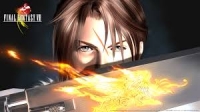
Final Fantasy VIII (ファイナルファンタジーVIII Fainaru Fantajī Eito) is a role-playing video game developed and published by Square for the PlayStation console. Released in 1999, it is the eighth main installment in the Final Fantasy series. Set on an unnamed fantasy world with science fiction elements, the game follows a group of young mercenaries, led by Squall Leonhart, as they are drawn into a conflict sparked by the sorceress Edea. After defeating Edea, the protagonists learn that she was under the control of Ultimecia, a sorceress from the future who wishes to compress time. During the quest to defeat Ultimecia, Squall struggles with his role as leader and develops a romance with one of his comrades, Rinoa Heartilly.
Development began in 1997, during the English localization of Final Fantasy VII. The game builds on the visual changes brought to the series by Final Fantasy VII, including use 3D graphics and pre-rendered backgrounds, while also departing from many Final Fantasy traditions. It is the first Final Fantasy to use realistically proportioned characters consistently, feature a vocal piece as its theme music, forego the use of magic points for spellcasting, and deviate from the series' traditional means of increasing a character's power.
Final Fantasy VIII was mostly well received by critics, who praised its originality and visuals while criticizing some of its gameplay elements. It was voted the 22nd-best game of all time in 2006 by readers of the Japanese magazine Famitsu. The game was a commercial success; 13 weeks after its release, Final Fantasy VIII had earned more than US$50 million in sales, making it the fastest-selling Final Fantasy title until Final Fantasy XIII, a multi-platform release. It was later ported to Windows-based personal computers and became available on PlayStation Network as a PSone Classics title in 2009. As of December 2013, it has sold more than 8.5 million copies worldwide.
Development began in 1997, during the English localization of Final Fantasy VII. The game builds on the visual changes brought to the series by Final Fantasy VII, including use 3D graphics and pre-rendered backgrounds, while also departing from many Final Fantasy traditions. It is the first Final Fantasy to use realistically proportioned characters consistently, feature a vocal piece as its theme music, forego the use of magic points for spellcasting, and deviate from the series' traditional means of increasing a character's power.
Final Fantasy VIII was mostly well received by critics, who praised its originality and visuals while criticizing some of its gameplay elements. It was voted the 22nd-best game of all time in 2006 by readers of the Japanese magazine Famitsu. The game was a commercial success; 13 weeks after its release, Final Fantasy VIII had earned more than US$50 million in sales, making it the fastest-selling Final Fantasy title until Final Fantasy XIII, a multi-platform release. It was later ported to Windows-based personal computers and became available on PlayStation Network as a PSone Classics title in 2009. As of December 2013, it has sold more than 8.5 million copies worldwide.
Francesco De Gregori

Francesco De Gregori OMRI is an Italian singer-songwriter. In Italy, he is popularly known as "Il Principe dei cantautori", a nickname referring to the elegance of his lyrics. He is often referred as singer-songwriter and poet, although he prefers to be identified simply as "artist".
Sting
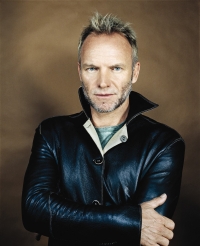
Gordon Matthew Thomas Sumner, CBE (born October 2, 1951), better known by his stage name Sting, is a three time Academy Award-nominated and multiple Grammy-winning English musician from Wallsend in North Tyneside. Prior to starting his solo career, he was the principal songwriter, lead singer and bassist of the rock band The Police. As a solo musician and member of The Police, Sting has sold over 100 million records, and received over sixteen Grammy Awards for his work, receiving his first Grammy for Best Rock Instrumental Performance in 1981, and receiving an Oscar nomination for best song.
Sting has stated that he gained his nickname while with the Phoenix Jazzmen. He once performed wearing a black and yellow sweater with hooped stripes that bandleader Gordon Solomon had noted made him look like a bumblebee; thus Sumner became "Sting". He uses Sting almost exclusively, except on official documents. In a press conference filmed in the movie Bring on the Night, he jokingly stated when referred to by a journalist as Gordon, "My children call me Sting, my mother calls me Sting, who is this Gordon character?"
Sting has stated that he gained his nickname while with the Phoenix Jazzmen. He once performed wearing a black and yellow sweater with hooped stripes that bandleader Gordon Solomon had noted made him look like a bumblebee; thus Sumner became "Sting". He uses Sting almost exclusively, except on official documents. In a press conference filmed in the movie Bring on the Night, he jokingly stated when referred to by a journalist as Gordon, "My children call me Sting, my mother calls me Sting, who is this Gordon character?"
Adele

Adele Laurie Blue Adkins (born 5 May 1988 in Enfield, North London), She is the first recipient of the Brit Awards Critics' Choice, which was given to artists who, at the time, had yet to release an album. She debuted at number one with her Mercury Prize nominated debut album 19 in the UK album chart and has since then been certified platinum with sales over 500,000 copies.
Elvis Presley

Elvis Aaron Presley (January 8, 1935–August 16, 1977, middle name sometimes written Aron)a was an American singer, musician and actor. A cultural icon, he is commonly referred to as the "The King of Rock 'n' Roll" or "The King".
In 1954, Presley began his career as the first performer of rockabilly, an uptempo fusion of country and rhythm and blues with a strong back beat. His novel versions of existing songs, mixing "black" and "white" sounds, made him popular—and controversial—as did his uninhibited stage and television performances. He recorded songs in the rock and roll genre, with tracks like "Hound Dog" and "Jailhouse Rock" later embodying the style. Presley had a versatile voice and had unusually wide success encompassing other genres, including gospel, blues, ballads and pop. To date, he has been inducted into four music halls of fame.
In the 1960s, Presley made the majority of his thirty-one movies—mainly poorly reviewed, but financially successful, musicals. In 1968, he returned with acclaim to live music in a television special, and thereafter performed across the U.S., notably in Las Vegas. Throughout his career, he set records for concert attendance, television ratings and recordings sales. He is one of the best-selling and most influential artists in the history of popular music. Health problems, drug dependency and other factors led to his premature death at age 42.
In 1954, Presley began his career as the first performer of rockabilly, an uptempo fusion of country and rhythm and blues with a strong back beat. His novel versions of existing songs, mixing "black" and "white" sounds, made him popular—and controversial—as did his uninhibited stage and television performances. He recorded songs in the rock and roll genre, with tracks like "Hound Dog" and "Jailhouse Rock" later embodying the style. Presley had a versatile voice and had unusually wide success encompassing other genres, including gospel, blues, ballads and pop. To date, he has been inducted into four music halls of fame.
In the 1960s, Presley made the majority of his thirty-one movies—mainly poorly reviewed, but financially successful, musicals. In 1968, he returned with acclaim to live music in a television special, and thereafter performed across the U.S., notably in Las Vegas. Throughout his career, he set records for concert attendance, television ratings and recordings sales. He is one of the best-selling and most influential artists in the history of popular music. Health problems, drug dependency and other factors led to his premature death at age 42.
John Williams

John Towner Williams (born February 8, 1932) is an American composer, conductor, and pianist. In a career that spans six decades, Williams has composed many of the most famous film scores in Hollywood history, including Star Wars, Superman, Home Alone, the first three Harry Potter movies and all but two of Steven Spielberg's feature films including the Indiana Jones series, Schindler's List, E.T. the Extra-Terrestrial, Jurassic Park and Jaws. He also composed the soundtrack for the hit 1960s television series Lost in Space as well as the fanfare of the DreamWorks Pictures' logo.
Williams has composed theme music for four Olympic Games, the NBC Nightly News, the rededication of the Statue of Liberty, and numerous television series and concert pieces. He served as the principal conductor of the Boston Pops Orchestra from 1980 to 1993, and is now the orchestra's laureate conductor.
Williams is a five-time winner of the Academy Award. He has also won four Golden Globe Awards, seven BAFTA Awards and 21 Grammy Awards. With 45 Academy Award nominations, Williams is, together with composer Alfred Newman, the second most nominated person after Walt Disney. He was inducted into the Hollywood Bowl Hall of Fame in 2000, and was a recipient of the Kennedy Center Honors in 2004.
Williams has composed theme music for four Olympic Games, the NBC Nightly News, the rededication of the Statue of Liberty, and numerous television series and concert pieces. He served as the principal conductor of the Boston Pops Orchestra from 1980 to 1993, and is now the orchestra's laureate conductor.
Williams is a five-time winner of the Academy Award. He has also won four Golden Globe Awards, seven BAFTA Awards and 21 Grammy Awards. With 45 Academy Award nominations, Williams is, together with composer Alfred Newman, the second most nominated person after Walt Disney. He was inducted into the Hollywood Bowl Hall of Fame in 2000, and was a recipient of the Kennedy Center Honors in 2004.
Felix Mendelssohn

Jakob Ludwig Felix Mendelssohn Bartholdy, born, and generally known in English-speaking countries, as Felix Mendelssohn (February 3, 1809 – November 4, 1847) was a German composer, pianist, organist and conductor of the early Romantic period.
The grandson of the philosopher Moses Mendelssohn, he was born into a notable Jewish family, although he himself was brought up initially without religion, and later as a Lutheran. He was recognized early as a musical prodigy, but his parents were cautious and did not seek to capitalise on his abilities. Indeed his father was disinclined to allow Felix to follow a musical career until it became clear that he intended to seriously dedicate himself to it.
Early success in Germany was followed by travel throughout Europe; Mendelssohn was particularly well received in England as a composer, conductor and soloist, and his ten visits there, during which many of his major works were premiered, form an important part of his adult career. His essentially conservative musical tastes however set him apart from many of his more adventurous musical contemporaries such as Liszt, Wagner and Berlioz. The Conservatory he founded at Leipzig became a bastion of this anti-radical outlook.
Mendelssohn's work includes symphonies, concerti, oratorios, piano and chamber music. He also had an important role in the revival of interest in the music of Johann Sebastian Bach. After a long period of relative denigration due to changing musical tastes and antisemitism in the late 19th and early 20th centuries, his creative originality is now being recognized and re-evaluated. He is now among the most popular composers of the Romantic era.
The grandson of the philosopher Moses Mendelssohn, he was born into a notable Jewish family, although he himself was brought up initially without religion, and later as a Lutheran. He was recognized early as a musical prodigy, but his parents were cautious and did not seek to capitalise on his abilities. Indeed his father was disinclined to allow Felix to follow a musical career until it became clear that he intended to seriously dedicate himself to it.
Early success in Germany was followed by travel throughout Europe; Mendelssohn was particularly well received in England as a composer, conductor and soloist, and his ten visits there, during which many of his major works were premiered, form an important part of his adult career. His essentially conservative musical tastes however set him apart from many of his more adventurous musical contemporaries such as Liszt, Wagner and Berlioz. The Conservatory he founded at Leipzig became a bastion of this anti-radical outlook.
Mendelssohn's work includes symphonies, concerti, oratorios, piano and chamber music. He also had an important role in the revival of interest in the music of Johann Sebastian Bach. After a long period of relative denigration due to changing musical tastes and antisemitism in the late 19th and early 20th centuries, his creative originality is now being recognized and re-evaluated. He is now among the most popular composers of the Romantic era.
Chopin

Frédéric Chopin (1 March 1810 – 17 October 1849) was a Polish composer and virtuoso pianist of the Romantic period. He is widely regarded as the greatest Polish composer, and ranks as one of music's greatest tone poets.
He was born in the village of Żelazowa Wola, in the Duchy of Warsaw, to a Polish mother and French-expatriate father, and in his early life was regarded as a child-prodigy pianist. In November 1830, at the age of 20, Chopin went abroad; following the suppression of the Polish November Uprising of 1830–31, he became one of many expatriates of the Polish "Great Emigration."
In Paris, he made a comfortable living as a composer and piano teacher, while giving few public performances. A Polish patriot,
Chopin's extant compositions were written primarily for the piano as a solo instrument. Though technically demanding, Chopin's style emphasizes nuance and expressive depth rather than virtuosity. Chopin invented musical forms such as the ballade and was responsible for major innovations in forms such as the piano sonata, waltz, nocturne, étude, impromptu and prelude. His works are mainstays of Romanticism in 19th-century classical music.
He was born in the village of Żelazowa Wola, in the Duchy of Warsaw, to a Polish mother and French-expatriate father, and in his early life was regarded as a child-prodigy pianist. In November 1830, at the age of 20, Chopin went abroad; following the suppression of the Polish November Uprising of 1830–31, he became one of many expatriates of the Polish "Great Emigration."
In Paris, he made a comfortable living as a composer and piano teacher, while giving few public performances. A Polish patriot,
Chopin's extant compositions were written primarily for the piano as a solo instrument. Though technically demanding, Chopin's style emphasizes nuance and expressive depth rather than virtuosity. Chopin invented musical forms such as the ballade and was responsible for major innovations in forms such as the piano sonata, waltz, nocturne, étude, impromptu and prelude. His works are mainstays of Romanticism in 19th-century classical music.
Bach

Johann Sebastian Bach (31 March 1685 – 28 July 1750) was a German composer and organist whose sacred and secular works for choir, orchestra, and solo instruments drew together the strands of the Baroque period and brought it to its ultimate maturity. Although he introduced no new forms, he enriched the prevailing German style with a robust contrapuntal technique, an unrivalled control of harmonic and motivic organisation in composition for diverse musical forces, and the adaptation of rhythms and textures from abroad, particularly Italy and France.
Revered for their intellectual depth and technical and artistic beauty, Bach's works include the Brandenburg concertos; the Goldberg Variations; the English Suites, French Suites, Partitas, and Well-Tempered Clavier; the Mass in B Minor; the St. Matthew Passion; the St. John Passion; The Musical Offering; The Art of Fugue; the Sonatas and Partitas for violin solo; the Cello Suites; more than 200 surviving cantatas; and a similar number of organ works, including the celebrated Toccata and Fugue in D Minor.
While Bach's fame as an organist was great during his lifetime, he was not particularly well-known as a composer. His adherence to Baroque forms and contrapuntal style was considered "old-fashioned" by his contemporaries, especially late in his career when the musical fashion tended towards Rococo and later Classical styles. A revival of interest and performances of his music began early in the 19th century, and he is now widely considered to be one of the greatest composers in the Western tradition.
Revered for their intellectual depth and technical and artistic beauty, Bach's works include the Brandenburg concertos; the Goldberg Variations; the English Suites, French Suites, Partitas, and Well-Tempered Clavier; the Mass in B Minor; the St. Matthew Passion; the St. John Passion; The Musical Offering; The Art of Fugue; the Sonatas and Partitas for violin solo; the Cello Suites; more than 200 surviving cantatas; and a similar number of organ works, including the celebrated Toccata and Fugue in D Minor.
While Bach's fame as an organist was great during his lifetime, he was not particularly well-known as a composer. His adherence to Baroque forms and contrapuntal style was considered "old-fashioned" by his contemporaries, especially late in his career when the musical fashion tended towards Rococo and later Classical styles. A revival of interest and performances of his music began early in the 19th century, and he is now widely considered to be one of the greatest composers in the Western tradition.
Georgy Sviridov
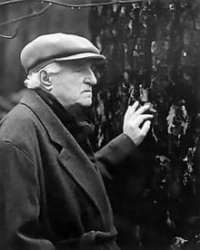
Georgy Vasilyevich Sviridov was a Russian neoromantic composer, active in the Soviet era. He is most widely known for his choral music, strongly influenced by the traditional chant of the Russian Orthodox Church, as well as his orchestral works which often celebrate elements of Russian culture.
Prokofiev

Sergei Sergeyevich Prokofiev (Russian: Сергей Сергеевич Прокофьев; Ukrainian: Сергій Сергійович Прокоф'єв) (27 April 1891 – 5 March 1953) was a Russian composer, pianist and conductor who mastered numerous musical genres and came to be admired as one of the greatest composers of the 20th century.
Prokofiev was a soloist with the London Symphony Orchestra, conducted by Piero Coppola, in the first recording of his Piano Concerto No. 3, recorded in London by His Master's Voice in June 1932. Prokofiev also recorded some of his solo piano music for HMV in Paris in February 1935; these recordings were issued on CD by Pearl and Naxos. In 1938, he conducted the Moscow Philharmonic Orchestra in a recording of the second suite from his Romeo and Juliet ballet; this performance was also later released on LP and CD. Another reported recording with Prokofiev and the Moscow Philharmonic was of the First Violin Concerto with David Oistrakh as soloist; Everest Records later released this recording on an LP.
Prokofiev was a soloist with the London Symphony Orchestra, conducted by Piero Coppola, in the first recording of his Piano Concerto No. 3, recorded in London by His Master's Voice in June 1932. Prokofiev also recorded some of his solo piano music for HMV in Paris in February 1935; these recordings were issued on CD by Pearl and Naxos. In 1938, he conducted the Moscow Philharmonic Orchestra in a recording of the second suite from his Romeo and Juliet ballet; this performance was also later released on LP and CD. Another reported recording with Prokofiev and the Moscow Philharmonic was of the First Violin Concerto with David Oistrakh as soloist; Everest Records later released this recording on an LP.
Paganini

Niccolò Paganini (27 October 1782 – 27 May 1840) was an Italian violinist, violist, guitarist, and composer. He was one of the most celebrated violin virtuosi of his time, and left his mark as one of the pillars of modern violin technique. His caprice in A minor, Op. 1 No. 24 is among his best known of compositions, and serves as inspiration for many prominent artists.
Paganini composed his own works to play exclusively in his concerts, all of which had profound influences on the evolution of violin techniques. His 24 Caprices were probably composed in the period between 1805 to 1809, while he was in the service of the Baciocchi court. Also during this period, he composed the majority of the solo pieces, duo-sonatas,trios and quartets for the guitar. These chamber works may have been inspired by the publication, in Lucca, of the guitar quintets of Boccherini. Many of his variations (and he has become the de facto master of this musical genre), including Le Streghe, The Carnival of Venice, and Nel cor più non mi sento, were composed, or at least first performed, before his European concert tour.
Playbill of Paganini's concert at the Covent Garden in 1832. Note that all solo pieces were of his composition, which was typical of all his concerts.
Generally speaking, Paganini's compositions were technically imaginative, and the timbre of the instrument was greatly expanded as a result of these works. Sounds of different musical instruments and animals were often imitated. One such composition was titled Il Fandango Spanolo (The Spanish Dance), which featured a series of humorous imitations of farm animals. Even more outrageous was a solo piece Duetto Amoroso, in which the sighs and groans of lovers were intimately depicted on the violin. Fortunately there survives a manuscript of the Duetto which has been recorded, while the existence of the Fandango is known only through concert posters.
However, his works were criticized for lacking characteristics of true polyphonism, as pointed out by Eugène Ysaÿe. Yehudi Menuhin, on the other hand, suggested that this might have been the result of his reliance on the guitar (in lieu of the piano) as an aid in composition. The orchestral parts for his concertos were often polite, unadventurous, and clearly supportive of the soloist. In this, his style is consistent with that of other Italian composers such as Paisiello, Rossini and Donizetti, who were influenced by the guitar-song milieu of Naples during this period.
Paganini was also the inspiration of many prominent composers. Both "La Campanella" and the A minor caprice (Nr. 24) have been an object of interest for a number of composers. Franz Liszt, Johannes Brahms, Sergei Rachmaninoff, Boris Blacher, Andrew Lloyd Webber, George Rochberg and Witold Lutosławski, among others, wrote well-known variations on these themes.
Paganini composed his own works to play exclusively in his concerts, all of which had profound influences on the evolution of violin techniques. His 24 Caprices were probably composed in the period between 1805 to 1809, while he was in the service of the Baciocchi court. Also during this period, he composed the majority of the solo pieces, duo-sonatas,trios and quartets for the guitar. These chamber works may have been inspired by the publication, in Lucca, of the guitar quintets of Boccherini. Many of his variations (and he has become the de facto master of this musical genre), including Le Streghe, The Carnival of Venice, and Nel cor più non mi sento, were composed, or at least first performed, before his European concert tour.
Playbill of Paganini's concert at the Covent Garden in 1832. Note that all solo pieces were of his composition, which was typical of all his concerts.
Generally speaking, Paganini's compositions were technically imaginative, and the timbre of the instrument was greatly expanded as a result of these works. Sounds of different musical instruments and animals were often imitated. One such composition was titled Il Fandango Spanolo (The Spanish Dance), which featured a series of humorous imitations of farm animals. Even more outrageous was a solo piece Duetto Amoroso, in which the sighs and groans of lovers were intimately depicted on the violin. Fortunately there survives a manuscript of the Duetto which has been recorded, while the existence of the Fandango is known only through concert posters.
However, his works were criticized for lacking characteristics of true polyphonism, as pointed out by Eugène Ysaÿe. Yehudi Menuhin, on the other hand, suggested that this might have been the result of his reliance on the guitar (in lieu of the piano) as an aid in composition. The orchestral parts for his concertos were often polite, unadventurous, and clearly supportive of the soloist. In this, his style is consistent with that of other Italian composers such as Paisiello, Rossini and Donizetti, who were influenced by the guitar-song milieu of Naples during this period.
Paganini was also the inspiration of many prominent composers. Both "La Campanella" and the A minor caprice (Nr. 24) have been an object of interest for a number of composers. Franz Liszt, Johannes Brahms, Sergei Rachmaninoff, Boris Blacher, Andrew Lloyd Webber, George Rochberg and Witold Lutosławski, among others, wrote well-known variations on these themes.
Ludwig van Beethoven

Ludwig van Beethoven (/ˈlʊdvɪɡ væn ˈbeɪt(h)oʊvən/ (About this soundlisten); German: (About this soundlisten); baptised 17 December 1770 – 26 March 1827) was a German composer and pianist. A crucial figure in the transition between the classical and romantic eras in classical music, he remains one of the most recognized and influential musicians of this period, and is considered to be one of the greatest composers of all time.
Beethoven was born in Bonn, the capital of the Electorate of Cologne, and part of the Holy Roman Empire. He displayed his musical talents at an early age and was vigorously taught by his father Johann van Beethoven, and was later taught by composer and conductor Christian Gottlob Neefe. At age 21, he moved to Vienna and studied composition with Joseph Haydn. Beethoven then gained a reputation as a virtuoso pianist, and was soon courted by Prince Lichnowsky for compositions, which resulted in Opus 1 in 1795.
Beethoven was born in Bonn, the capital of the Electorate of Cologne, and part of the Holy Roman Empire. He displayed his musical talents at an early age and was vigorously taught by his father Johann van Beethoven, and was later taught by composer and conductor Christian Gottlob Neefe. At age 21, he moved to Vienna and studied composition with Joseph Haydn. Beethoven then gained a reputation as a virtuoso pianist, and was soon courted by Prince Lichnowsky for compositions, which resulted in Opus 1 in 1795.
Mika

Mica Penniman (born 18 August 1983), known as Mika, is a Lebanese-born, London-based, Grammy-nominated and BRIT Award-winning singer-songwriter, who has a recording contract with Casablanca Records and Universal Music. He rose to fame around the end of 2006 and the start of 2007. His birth name is Michael Holbrook Penniman.
George Rochberg

George Rochberg was an American composer of contemporary classical music. Long a serial composer, Rochberg abandoned the practice following the death of his teenage son in 1964; he claimed this compositional technique had proved inadequate to express his grief and had found it empty of expressive intent
Super Mario Bros

Super Mario is a platform game series created by Nintendo, featuring their mascot, Mario. Alternatively called the Super Mario Bros. series or simply the Mario series, it is the central series of the greater Mario franchise. At least one Super Mario game has been released for every major Nintendo video game console. There have also been a number of Super Mario video games released on non-Nintendo gaming platforms. There are currently twenty-one similar games and one cross-series game that may or may not be included as part of the series.
George Gershwin

George Gershwin (September 26, 1898 – July 11, 1937) was an American composer. He wrote most of his vocal and theatrical works in collaboration with his elder brother, lyricist Ira Gershwin. George Gershwin composed songs both for Broadway and for the classical concert hall. He also wrote popular songs with success.
Many of his compositions have been used on television and in numerous films, and many became jazz standards. The jazz singer Ella Fitzgerald recorded many of the Gershwins' songs on her 1959 Gershwin Songbook (arranged by Nelson Riddle). Countless singers and musicians have recorded Gershwin songs, including Fred Astaire, Louis Armstrong, Al Jolson, Bobby Darin, Art Tatum, Bing Crosby, Janis Joplin, John Coltrane, Frank Sinatra, Billie Holiday, Sam Cooke, Miles Davis, Herbie Hancock, Madonna, Judy Garland, Julie Andrews, Barbra Streisand, Marni Nixon, Natalie Cole, Patti Austin, Nina Simone, Maureen McGovern, John Fahey, The Residents, Than & Sam, Sublime, and Sting. A residential building is named after him on the Stony Brook University campus.
Many of his compositions have been used on television and in numerous films, and many became jazz standards. The jazz singer Ella Fitzgerald recorded many of the Gershwins' songs on her 1959 Gershwin Songbook (arranged by Nelson Riddle). Countless singers and musicians have recorded Gershwin songs, including Fred Astaire, Louis Armstrong, Al Jolson, Bobby Darin, Art Tatum, Bing Crosby, Janis Joplin, John Coltrane, Frank Sinatra, Billie Holiday, Sam Cooke, Miles Davis, Herbie Hancock, Madonna, Judy Garland, Julie Andrews, Barbra Streisand, Marni Nixon, Natalie Cole, Patti Austin, Nina Simone, Maureen McGovern, John Fahey, The Residents, Than & Sam, Sublime, and Sting. A residential building is named after him on the Stony Brook University campus.
Joss Whedon
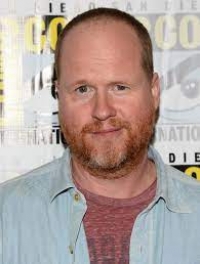
Joseph Hill Whedon (/ˈwiːdən/; born June 23, 1964) is an American film director, producer, writer, and composer. He is the founder of Mutant Enemy Productions, co-founder of Bellwether Pictures, and is best known as the creator of several television series. These include Buffy the Vampire Slayer (1997–2003), Angel (1999–2004), Firefly (2002), Dollhouse (2009–2010), and Agents of S.H.I.E.L.D. (2013–2020).
Woody Herman
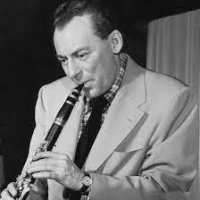
Woodrow Charles Herman was an American jazz clarinetist, saxophonist, singer, and big band leader. Leading groups called "The Herd", Herman came to prominence in the late 1930s and was active until his death in 1987.
Arthur S. Sullivan
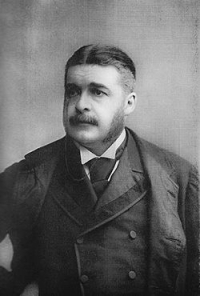
Sir Arthur Seymour Sullivan MVO (13 May 1842 – 22 November 1900) was an English composer, of Irish and Italian descent, best known for his operatic collaborations with librettist W. S. Gilbert, including such continually popular works as H.M.S. Pinafore, The Pirates of Penzance, and The Mikado. Sullivan's artistic output included 23 operas, 13 major orchestral works, eight choral works and oratorios, two ballets, incidental music to several plays, and numerous hymns and other church pieces, songs, parlour ballads, part songs, carols, and piano and chamber pieces.
Apart from his comic operas with Gilbert, Sullivan is best known for some of his hymns and parlour songs, including "Onward Christian Soldiers", "The Absent-Minded Beggar", and "The Lost Chord". His most critically praised pieces include his Irish Symphony, his Overture di Ballo, The Martyr of Antioch, The Golden Legend, and, of the Savoy Operas, The Yeomen of the Guard. Sullivan's only grand opera, Ivanhoe, was initially highly successful, but it has been little heard since his death.
Apart from his comic operas with Gilbert, Sullivan is best known for some of his hymns and parlour songs, including "Onward Christian Soldiers", "The Absent-Minded Beggar", and "The Lost Chord". His most critically praised pieces include his Irish Symphony, his Overture di Ballo, The Martyr of Antioch, The Golden Legend, and, of the Savoy Operas, The Yeomen of the Guard. Sullivan's only grand opera, Ivanhoe, was initially highly successful, but it has been little heard since his death.
Billy Joel

William Martin Joel (born May 9, 1949) is an American pianist and singer-songwriter. He released his first hit song, "Piano Man", in 1973. According to the RIAA, he is the sixth best-selling recording artist in the United States.
Joel had Top 10 hits in the '70s, '80s, and '90s; is a six-time Grammy Award winner, and has sold in excess of 150 million albums worldwide. He was inducted into the Songwriter's Hall of Fame (Class of 1992), the Rock and Roll Hall of Fame (Class of 1999), and the Long Island Music Hall of Fame (Class of 2006). Joel "retired" from recording pop music in 1993 but continued to tour (sometimes with Elton John). In 2001 he subsequently released Fantasies & Delusions, a CD of classical compositions for piano. In 2007 he returned to recording with a single entitled "All My Life," followed by an extensive "World Tour" from 2006-2008, covering many of the major world cities.
Joel had Top 10 hits in the '70s, '80s, and '90s; is a six-time Grammy Award winner, and has sold in excess of 150 million albums worldwide. He was inducted into the Songwriter's Hall of Fame (Class of 1992), the Rock and Roll Hall of Fame (Class of 1999), and the Long Island Music Hall of Fame (Class of 2006). Joel "retired" from recording pop music in 1993 but continued to tour (sometimes with Elton John). In 2001 he subsequently released Fantasies & Delusions, a CD of classical compositions for piano. In 2007 he returned to recording with a single entitled "All My Life," followed by an extensive "World Tour" from 2006-2008, covering many of the major world cities.
Rod Stewart

Sir Roderick David Stewart CBE (born 10 January 1945) is a British rock singer and songwriter. Born and raised in London, he is of Scottish and English ancestry. Stewart is one of the best-selling music artists of all time, having sold over 120 million records worldwide. He has had nine number-one albums in the UK Albums Chart and his tally of 62 UK hit singles includes 31 that reached the top ten, six of which gained the #1 position. Stewart has had 16 top ten singles in the US, with four reaching #1 on the Billboard Hot 100. He was knighted in the 2016 Birthday Honours for services to music and charity.
Carter Burwell
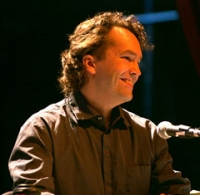
Carter Burwell (born November 18, 1955) is an American composer of film scores.
Burwell was born in New York City. He graduated from King School in Stamford, Connecticut, and Harvard College.
As a film composer, Burwell has had a long working relationship with the Coen Brothers, providing music for every film they have made (except for O Brother, Where Art Thou?, where he simply provided additional music to a score primarily composed by T Bone Burnett). He enjoys working with left-field directors and has also scored Spike Jonze's films. Among his best known film scores are And the Band Played On (1993), Conspiracy Theory (1997), Hamlet (2000), The Spanish Prisoner (1997), Before the Devil Knows You're Dead (2007), In Bruges (2008) and Twilight (2008).
Burwell, like many composers, studied piano. Starting lessons when he was 7, he studied Mozart mostly, but eventually quit.
In April 2005, Burwell composed and conducted music, performed by The Parabola Ensemble, for the plays "Sawbones" written and directed by the Coen Brothers, "Hope Leaves the Theater" written and directed by Charlie Kaufman and "Anomalisa" written and directed by Francis Fregoli. This was a segment of the sound-only production Theater of the New Ear, which debuted at St. Ann's Warehouse in Brooklyn, NY with support from Sirius Satellite Radio, United Talent Agency and Sony Pictures.
Burwell married Christine Sciulli in 1999.
Burwell was born in New York City. He graduated from King School in Stamford, Connecticut, and Harvard College.
As a film composer, Burwell has had a long working relationship with the Coen Brothers, providing music for every film they have made (except for O Brother, Where Art Thou?, where he simply provided additional music to a score primarily composed by T Bone Burnett). He enjoys working with left-field directors and has also scored Spike Jonze's films. Among his best known film scores are And the Band Played On (1993), Conspiracy Theory (1997), Hamlet (2000), The Spanish Prisoner (1997), Before the Devil Knows You're Dead (2007), In Bruges (2008) and Twilight (2008).
Burwell, like many composers, studied piano. Starting lessons when he was 7, he studied Mozart mostly, but eventually quit.
In April 2005, Burwell composed and conducted music, performed by The Parabola Ensemble, for the plays "Sawbones" written and directed by the Coen Brothers, "Hope Leaves the Theater" written and directed by Charlie Kaufman and "Anomalisa" written and directed by Francis Fregoli. This was a segment of the sound-only production Theater of the New Ear, which debuted at St. Ann's Warehouse in Brooklyn, NY with support from Sirius Satellite Radio, United Talent Agency and Sony Pictures.
Burwell married Christine Sciulli in 1999.
Jon Brion

Jon Brion (born December 11, 1963) is an American singer, songwriter, multi-instrumentalist, record producer, and composer. He performed with The Excerpts, The Bats, and The Grays before becoming an established producer and film score composer. Brion has produced music for artists like Frank Ocean, Fiona Apple, Kanye West, Mac Miller, Aimee Mann, Brad Mehldau, of Montreal, Rufus Wainwright, Robyn Hitchcock, and Sky Ferreira.
Ernst von Dohnanyi
Ernst von Dohnányi (Hungarian: Dohnányi Ernő, ; 27 July 1877 – 9 February 1960) was a Hungarian composer, pianist and conductor. He used a German form of his name on most of his published compositionsDohnányi was born in Pozsony, Kingdom of Hungary, Austria-Hungary (today Bratislava, capital of Slovakia). He first studied music with his father, a professor of mathematics and an amateur cellist, and then when he was eight years old, with Carl Forstner, organist at the local cathedral. In 1894, in his 17th year, he moved to Budapest and enrolled in the Royal National Hungarian Academy of Music, studying piano with István Thomán and composition with Hans von Koessler, a cousin of Max Reger.
Fritz Kreisler

Friedrich "Fritz" Kreisler was an Austrian-born violinist and composer. One of the most noted violin masters of his day, and regarded as one of the greatest violinists of all time, he was known for his sweet tone and expressive phrasing
Yoko Kanno
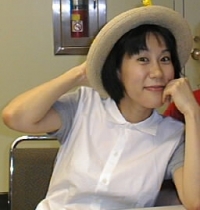
Yoko Kanno (菅野 よう子 Kanno Yōko?, born March 19, 1964 in Miyagi Prefecture, Japan) is a composer, arranger and musician best known for her work on the soundtracks for many games, anime films, TV series, live-action movies, and advertisements. She has written scores for famous animated works, including Macross Plus, Turn A Gundam, Cowboy Bebop, The Vision of Escaflowne, Ghost in the Shell: Stand Alone Complex, Wolf's Rain, and is the most trusted composer by veteran and new-wave directors such as Yoshiyuki Tomino, Shinichiro Watanabe and Shoji Kawamori. Kanno has also composed music for J-pop artists, the most notable being Maaya Sakamoto and Kyōko Koizumi. She is also a skilled keyboardist, and is the frontwoman for The Seatbelts, who perform many of Kanno's compositions on the various original soundtracks for which she is responsible.
Big Bang

Big Bang (Korean: 빅뱅), commonly stylized as BIGBANG, is a Korean boyband made up of five Korean singers. Although their debut was somewhat successful, it was not until the release of "거짓말" ("Lies") that the group gained mainstream success.
Big Bang's music style can be classified for the most part as hip pop music (as seen with the songs "La, La, La" and "Goodbye Baby"), with a little vibe of R&B (as seen with the songs "We Belong Together" and "Forever With You"), dance ("Shake It") and mainstream ("This Love") music. Rock with "Oh My Friend". Finally, becoming the greatest hit songs of 2007, (as seen with the songs "Lies", "Last Farewell", and "Haru Haru (Day By Day)") electronica is seemingly becoming the new music trend in Korea. However, the members have branched out into different genres in their solo work, including singing ballads and mainstream pop music. Big Bang even once mentioned in an interview that if they want to, they might do trot someday. Daesung's first digital single, "Look at Me, GwiSun" ("날 봐, 귀순"), was a trot song, which had been somewhat controversial considering Big Bang's primary focus on hip-hop.
The members of Big Bang often contribute to writing lyrics for their own music as well as composing despite only debuting in 2006. The most notable from the group to compose and write is leader G-Dragon, as he has composed and written numerous songs for the group, including "Lies" and "Last Farewell." Aside from G-Dragon, the others members have contributed to writing lyrics as well. T.O.P has also written a song for their third mini album Stand up, called "Good Man". On a whole, Big Bang has received praises from critics, fans, and other singers alike for contributions to their own materials.
Big Bang's music style can be classified for the most part as hip pop music (as seen with the songs "La, La, La" and "Goodbye Baby"), with a little vibe of R&B (as seen with the songs "We Belong Together" and "Forever With You"), dance ("Shake It") and mainstream ("This Love") music. Rock with "Oh My Friend". Finally, becoming the greatest hit songs of 2007, (as seen with the songs "Lies", "Last Farewell", and "Haru Haru (Day By Day)") electronica is seemingly becoming the new music trend in Korea. However, the members have branched out into different genres in their solo work, including singing ballads and mainstream pop music. Big Bang even once mentioned in an interview that if they want to, they might do trot someday. Daesung's first digital single, "Look at Me, GwiSun" ("날 봐, 귀순"), was a trot song, which had been somewhat controversial considering Big Bang's primary focus on hip-hop.
The members of Big Bang often contribute to writing lyrics for their own music as well as composing despite only debuting in 2006. The most notable from the group to compose and write is leader G-Dragon, as he has composed and written numerous songs for the group, including "Lies" and "Last Farewell." Aside from G-Dragon, the others members have contributed to writing lyrics as well. T.O.P has also written a song for their third mini album Stand up, called "Good Man". On a whole, Big Bang has received praises from critics, fans, and other singers alike for contributions to their own materials.
Benny Green
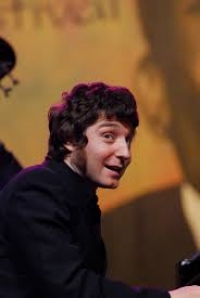
Benny Green
Benny Green (pianist).jpg
Photo by John Dugan
Background information
Born April 4, 1963 (age 56)
New York City, New York, U.S.
Genres Jazz
Occupation(s) Musician
Instruments Piano
Labels Criss Cross, Blue Note, Telarc, Sunnyside
Associated acts Art Blakey's Jazz Messengers
Website bennygreenmusic.com
Benny Green (born April 4, 1963) is an American hard bop jazz pianist who was a member of Art Blakey's Jazz Messengers. He has been compared to Bud Powell and Oscar Peterson in style and counts them as influences.
Contents
1 Biography
2 Discography
2.1 As leader
2.2 As sideman
3 References
4 External links
Biography
Green was born in New York City. He grew up in Berkeley, California, and studied classical piano from the age of seven. He also had an interest in jazz from an early point, as his father was a jazz tenor saxophone player. Benny Green was "discovered" by Faye Carroll, and while still in his teens worked in a quintet led by Eddie Henderson. Green attended Berkeley High School, and participated in the school's jazz ensemble. In the later years of his high school career, he had a weekly trio gig at Yoshi's, which marked his entrance to the world of professional jazz. After high school he spent time in San Francisco, but became more successful on his return to New York.
Green joined Betty Carter's band in April, 1983, and since 1991 he has led his own trio. He has recorded for Blue Note Records, Telarc, and Criss Cross Jazz.
Green frequently teaches in workshops across the United States, such as Jazz Camp West in California, and Centrum/Jazz Port Townsend in Washington. He currently resides in the United States and tours globally with the world-famous Benny Green Trio. His 2018 studio album release "Then and Now" is now available from Sunnyside Records.
Discography
As leader
Year recorded Title Label Personnel/Notes
1988 Prelude Criss Cross Quintet, with Terence Blanchard (trumpet), Javon Jackson (tenor sax), Peter Washington (bass), Tony Reedus (drums)
1988–89 In This Direction Criss Cross Trio, with Buster Williams (bass), Lewis Nash (drums)
1990 Lineage Blue Note Trio, with Ray Drummond (bass), Victor Lewis (drums)
1991 Greens Blue Note Trio, with Christian McBride (bass), Carl Allen (drums)
1991 Testifyin'!: Live at the Village Vanguard Blue Note Trio, with Christian McBride (bass), Carl Allen (drums); in concert
1992 That's Right! Blue Note Trio, with Christian McBride (bass), Carl Allen (drums)
1994 The Place to Be Blue Note Some tracks solo piano; some tracks trio, with Christian McBride (bass), Kenny Washington (drums); some tracks nonet, with Byron Stripling (trumpet), Delfeayo Marsalis (trombone), John Clark (French horn), Herb Besson (tuba), Jerry Dodgion (flute, alto flute, alto sax), Gary Smulyan (baritone sax) added
1996 Kaleidoscope Blue Note With Stanley Turrentine (tenor sax), Antonio Hart (alto sax), Russell Malone (guitar), Ron Carter (bass), Lewis Nash (drums)
1997 Oscar and Benny Telarc Quartet, with Oscar Peterson (piano), Ray Brown (bass), Gregory Hutchinson (drums)
1999 These Are Soulful Days Blue Note Trio, with Russell Malone (guitar), Christian McBride (bass)
2000 Naturally Telarc Trio, with Russell Malone (guitar), Christian McBride (bass)
2001 Green's Blues Telarc Solo piano
2002 Jazz at the Bistro Telarc Duo, with Russell Malone (guitar); in concert
2003 Bluebird Telarc Duo, with Russell Malone (guitar)
2011? Source Jazz Legacy
2013? Magic Beans Sunnyside Trio, with Peter Washington (bass), Kenny Washington (drums)
2013 Live in Santa Cruz! Sunnyside Trio, with David Wong (bass), Kenny Washington (drums); in concert
2016 Happiness! Live at Kuumbwa Sunnyside Trio, with David Wong (bass), Rodney Green (drums); in concert
2018 Then and Now Sunnyside Some tracks trio, with David Wong (bass), Kenny Washington (drums); one track quartet, with Anne Drummond (flute, alto flute) added; two tracks quintet, with Drummond, Josh Jones (percussion) added; four tracks quartet, with Veronica Swift (vocals) added
Main sources:
As sideman
With Art Blakey
Not Yet (Soul Note, 1988)
I Get a Kick Out of Bu (Soul Note, 1988)
With Bob Belden
Straight to My Heart: The Music of Sting (1989)
When the Doves Cry: The Music of Prince (1993)
With Don Braden
Quintet Time Is Now (1991)
Wish List (1991)
With Cecil Brooks III
Hangin' with Smooth (Muse, 1990)
Our Mister Brooks (2000)
With Ray Brown
Bass Face (1993)
Dont Get Sassy (1994)
Some of My Best Friends Are... (1994)
Some of My Best Friends Are... (1995)
Seven Steps to Heaven (1995)
Live at Scullers Jazz Club (1996)
SuperBass (1997)
Triple Play (1998)
Walk On (2003)
With Arnett Cobb
Tenor Tribute, Vol. 1 (1988)
Tenor Tribute, Vol. 2 (1988)
With Freddie Hubbard
Topsy - Standard Book (1989)
Live at Fat Tuesday (1991)
God Bless the Child (1998)
With Etta Jones
Reverse the Charges (Muse, 1992)
At Last (Muse, 1995)
My Gentleman Friend (Muse, 1994 )
With Ralph Moore
Round Trip (Reservoir, 1985 )
Images (Landmark, 1989)
Furthermore (Landmark, 1990)
Who It is You Are (1993)
With Houston Person
The Lion and His Pride (Muse, 1991 )
Christmas with Houston Person and Friends (Muse, 1994)
Little Houston on the Side (1999)
With Jimmy Ponder
Soul Eyes (1991)
Steel City Soul (1998)
With Jim Snidero
Mixed Bag (1987)
Blue Afternoon (1989)
While You Were Here (1991)
With Lew Tabackin
Ill Be Seeing You (1992)
What a Little Moonlight Can Do (1994)
With Jack Walrath
Out of the Tradition (Muse, 1990 )
I Am the Walrath (2000)
With others
Gary Bartz, Shadows (1991)
Block 16 Morning Sun Remixed (2002)
Betty Carter Look What I Got (1988)
Anat Cohen, Clarinetwork: Live at the Village Vanguard (2010)
Mark Elf Minor Scramble (1996)
Larry Gales Message from Monk (1990)
Tim Hagans Hub Songs: The Music of Freddie... (1997)
Jay Hoggard Little Tiger (1990)
Fred Horn Steady Freddy Collective Cuts (1995)
Jazz Futures Live in Concert (1991)
Milt Jackson Burnin in the Woodhouse (1995)
Ron Jackson Guitar Thing (1991)
Randy Johnston, Walk On (Muse, 1992)
Vince Jones One Day Spent (1991)
Kristin Korb Introducing Kristin Korb With the... (1996)
Diana Krall All for You (1995)
Michael Logan Night Out (1990)
Brian Lynch In Process (1991)
Mingus Dynasty Next Generation Performs Charles... (1991)
Amani A. W. Murray Amani A. W. Murray (1990)
Randy Napoleon Between Friends (2006)
Oscar Peterson Oscar Peterson & Benny Green (1998)
Flip Phillips Swing Is the Thing! (2000)
John Pizzarelli Dear Mr. Cole (1994)
Lisa Pollard I See Your Face Before Me (1993)
Clark Terry One on One (2000)
Steve Turre Right There (1991)
Belinda Underwood Greenspace (2008)
Bobby Watson Inventor (1989)
References
Scheinin, Richard (25 June 2013). "Review: Pianist Benny Green delivers sheer jazz joy – The Mercury News". San Jose Mercury. Retrieved 7 July 2014.
"Bio". www.bennygreen.music. 22 August 2012. Retrieved 3 July 2014.
Yanow, Scott. "Benny Green | Biography & History | AllMusic". AllMusic.
Cook, Richard; Morton, Brian (1992). The Penguin Guide to Jazz on CD, LP & Cassette (1st ed.). Penguin. p. 445. ISBN 978-0-14-015364-4.
Cook, Richard; Morton, Brian (1996). The Penguin Guide to Jazz on CD (3rd ed.). Penguin. p. 539. ISBN 978-0-14-051368-4.
Cook, Richard; Morton, Brian (2004). The Penguin Guide to Jazz on CD (7th ed.). Penguin. ISBN 978-0-14-101416-6.
Cook, Richard; Morton, Brian (2008). The Penguin Guide to Jazz Recordings (9th ed.). Penguin. p. 597. ISBN 978-0-141-03401-0.
Benny Green (pianist).jpg
Photo by John Dugan
Background information
Born April 4, 1963 (age 56)
New York City, New York, U.S.
Genres Jazz
Occupation(s) Musician
Instruments Piano
Labels Criss Cross, Blue Note, Telarc, Sunnyside
Associated acts Art Blakey's Jazz Messengers
Website bennygreenmusic.com
Benny Green (born April 4, 1963) is an American hard bop jazz pianist who was a member of Art Blakey's Jazz Messengers. He has been compared to Bud Powell and Oscar Peterson in style and counts them as influences.
Contents
1 Biography
2 Discography
2.1 As leader
2.2 As sideman
3 References
4 External links
Biography
Green was born in New York City. He grew up in Berkeley, California, and studied classical piano from the age of seven. He also had an interest in jazz from an early point, as his father was a jazz tenor saxophone player. Benny Green was "discovered" by Faye Carroll, and while still in his teens worked in a quintet led by Eddie Henderson. Green attended Berkeley High School, and participated in the school's jazz ensemble. In the later years of his high school career, he had a weekly trio gig at Yoshi's, which marked his entrance to the world of professional jazz. After high school he spent time in San Francisco, but became more successful on his return to New York.
Green joined Betty Carter's band in April, 1983, and since 1991 he has led his own trio. He has recorded for Blue Note Records, Telarc, and Criss Cross Jazz.
Green frequently teaches in workshops across the United States, such as Jazz Camp West in California, and Centrum/Jazz Port Townsend in Washington. He currently resides in the United States and tours globally with the world-famous Benny Green Trio. His 2018 studio album release "Then and Now" is now available from Sunnyside Records.
Discography
As leader
Year recorded Title Label Personnel/Notes
1988 Prelude Criss Cross Quintet, with Terence Blanchard (trumpet), Javon Jackson (tenor sax), Peter Washington (bass), Tony Reedus (drums)
1988–89 In This Direction Criss Cross Trio, with Buster Williams (bass), Lewis Nash (drums)
1990 Lineage Blue Note Trio, with Ray Drummond (bass), Victor Lewis (drums)
1991 Greens Blue Note Trio, with Christian McBride (bass), Carl Allen (drums)
1991 Testifyin'!: Live at the Village Vanguard Blue Note Trio, with Christian McBride (bass), Carl Allen (drums); in concert
1992 That's Right! Blue Note Trio, with Christian McBride (bass), Carl Allen (drums)
1994 The Place to Be Blue Note Some tracks solo piano; some tracks trio, with Christian McBride (bass), Kenny Washington (drums); some tracks nonet, with Byron Stripling (trumpet), Delfeayo Marsalis (trombone), John Clark (French horn), Herb Besson (tuba), Jerry Dodgion (flute, alto flute, alto sax), Gary Smulyan (baritone sax) added
1996 Kaleidoscope Blue Note With Stanley Turrentine (tenor sax), Antonio Hart (alto sax), Russell Malone (guitar), Ron Carter (bass), Lewis Nash (drums)
1997 Oscar and Benny Telarc Quartet, with Oscar Peterson (piano), Ray Brown (bass), Gregory Hutchinson (drums)
1999 These Are Soulful Days Blue Note Trio, with Russell Malone (guitar), Christian McBride (bass)
2000 Naturally Telarc Trio, with Russell Malone (guitar), Christian McBride (bass)
2001 Green's Blues Telarc Solo piano
2002 Jazz at the Bistro Telarc Duo, with Russell Malone (guitar); in concert
2003 Bluebird Telarc Duo, with Russell Malone (guitar)
2011? Source Jazz Legacy
2013? Magic Beans Sunnyside Trio, with Peter Washington (bass), Kenny Washington (drums)
2013 Live in Santa Cruz! Sunnyside Trio, with David Wong (bass), Kenny Washington (drums); in concert
2016 Happiness! Live at Kuumbwa Sunnyside Trio, with David Wong (bass), Rodney Green (drums); in concert
2018 Then and Now Sunnyside Some tracks trio, with David Wong (bass), Kenny Washington (drums); one track quartet, with Anne Drummond (flute, alto flute) added; two tracks quintet, with Drummond, Josh Jones (percussion) added; four tracks quartet, with Veronica Swift (vocals) added
Main sources:
As sideman
With Art Blakey
Not Yet (Soul Note, 1988)
I Get a Kick Out of Bu (Soul Note, 1988)
With Bob Belden
Straight to My Heart: The Music of Sting (1989)
When the Doves Cry: The Music of Prince (1993)
With Don Braden
Quintet Time Is Now (1991)
Wish List (1991)
With Cecil Brooks III
Hangin' with Smooth (Muse, 1990)
Our Mister Brooks (2000)
With Ray Brown
Bass Face (1993)
Dont Get Sassy (1994)
Some of My Best Friends Are... (1994)
Some of My Best Friends Are... (1995)
Seven Steps to Heaven (1995)
Live at Scullers Jazz Club (1996)
SuperBass (1997)
Triple Play (1998)
Walk On (2003)
With Arnett Cobb
Tenor Tribute, Vol. 1 (1988)
Tenor Tribute, Vol. 2 (1988)
With Freddie Hubbard
Topsy - Standard Book (1989)
Live at Fat Tuesday (1991)
God Bless the Child (1998)
With Etta Jones
Reverse the Charges (Muse, 1992)
At Last (Muse, 1995)
My Gentleman Friend (Muse, 1994 )
With Ralph Moore
Round Trip (Reservoir, 1985 )
Images (Landmark, 1989)
Furthermore (Landmark, 1990)
Who It is You Are (1993)
With Houston Person
The Lion and His Pride (Muse, 1991 )
Christmas with Houston Person and Friends (Muse, 1994)
Little Houston on the Side (1999)
With Jimmy Ponder
Soul Eyes (1991)
Steel City Soul (1998)
With Jim Snidero
Mixed Bag (1987)
Blue Afternoon (1989)
While You Were Here (1991)
With Lew Tabackin
Ill Be Seeing You (1992)
What a Little Moonlight Can Do (1994)
With Jack Walrath
Out of the Tradition (Muse, 1990 )
I Am the Walrath (2000)
With others
Gary Bartz, Shadows (1991)
Block 16 Morning Sun Remixed (2002)
Betty Carter Look What I Got (1988)
Anat Cohen, Clarinetwork: Live at the Village Vanguard (2010)
Mark Elf Minor Scramble (1996)
Larry Gales Message from Monk (1990)
Tim Hagans Hub Songs: The Music of Freddie... (1997)
Jay Hoggard Little Tiger (1990)
Fred Horn Steady Freddy Collective Cuts (1995)
Jazz Futures Live in Concert (1991)
Milt Jackson Burnin in the Woodhouse (1995)
Ron Jackson Guitar Thing (1991)
Randy Johnston, Walk On (Muse, 1992)
Vince Jones One Day Spent (1991)
Kristin Korb Introducing Kristin Korb With the... (1996)
Diana Krall All for You (1995)
Michael Logan Night Out (1990)
Brian Lynch In Process (1991)
Mingus Dynasty Next Generation Performs Charles... (1991)
Amani A. W. Murray Amani A. W. Murray (1990)
Randy Napoleon Between Friends (2006)
Oscar Peterson Oscar Peterson & Benny Green (1998)
Flip Phillips Swing Is the Thing! (2000)
John Pizzarelli Dear Mr. Cole (1994)
Lisa Pollard I See Your Face Before Me (1993)
Clark Terry One on One (2000)
Steve Turre Right There (1991)
Belinda Underwood Greenspace (2008)
Bobby Watson Inventor (1989)
References
Scheinin, Richard (25 June 2013). "Review: Pianist Benny Green delivers sheer jazz joy – The Mercury News". San Jose Mercury. Retrieved 7 July 2014.
"Bio". www.bennygreen.music. 22 August 2012. Retrieved 3 July 2014.
Yanow, Scott. "Benny Green | Biography & History | AllMusic". AllMusic.
Cook, Richard; Morton, Brian (1992). The Penguin Guide to Jazz on CD, LP & Cassette (1st ed.). Penguin. p. 445. ISBN 978-0-14-015364-4.
Cook, Richard; Morton, Brian (1996). The Penguin Guide to Jazz on CD (3rd ed.). Penguin. p. 539. ISBN 978-0-14-051368-4.
Cook, Richard; Morton, Brian (2004). The Penguin Guide to Jazz on CD (7th ed.). Penguin. ISBN 978-0-14-101416-6.
Cook, Richard; Morton, Brian (2008). The Penguin Guide to Jazz Recordings (9th ed.). Penguin. p. 597. ISBN 978-0-141-03401-0.
Les Miserables
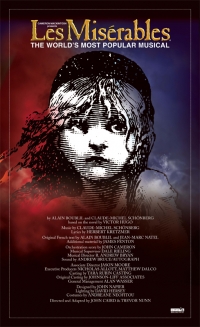
Les Misérables, colloquially known as Les Mis or Les Miz, is a musical composed in 1980 by the French composer Claude-Michel Schönberg with a libretto by Alain Boublil. Sung through, it is perhaps the most famous of all French musicals and one of the most performed musicals worldwide. On October 8, 2006, the show celebrated its 21st anniversary and became the longest-running West End musical in history and is still running (though it has changed venues).
Among the most famous songs of this Tony award-winning musical are "I Dreamed a Dream", "One Day More", "A Heart Full of Love", "Stars", "Bring Him Home", "Do You Hear the People Sing?", "Master of the House", and "On My Own."
The musical is based on the 1862 novel Les Misérables by Victor Hugo. Set in early 19th century France, it follows the intertwining stories of a cast of characters as they struggle for redemption and revolution. The characters include a paroled convict named Jean Valjean who, failing attempts to find work as an honest man with his yellow ticket of leave, breaks his parole and conceals his identity; the police inspector Javert who becomes obsessed with finding Valjean; Fantine, the single mother who is forced to become a prostitute to support her daughter; Cosette, who eventually falls in love with a French student named Marius Pontmercy. After Fantine dies, Cosette becomes Jean Valjean's adopted daughter; the Thénardiers, the unscrupulous innkeepers who thrive on cheating and stealing; Éponine, their young daughter who is hopelessly in love with Marius; Gavroche, a young beggar boy; and student leader Enjolras who plans the revolt to free the oppressed lower classes of France. The main characters are joined by an ensemble that includes prostitutes, student revolutionaries, factory workers, and others.
Among the most famous songs of this Tony award-winning musical are "I Dreamed a Dream", "One Day More", "A Heart Full of Love", "Stars", "Bring Him Home", "Do You Hear the People Sing?", "Master of the House", and "On My Own."
The musical is based on the 1862 novel Les Misérables by Victor Hugo. Set in early 19th century France, it follows the intertwining stories of a cast of characters as they struggle for redemption and revolution. The characters include a paroled convict named Jean Valjean who, failing attempts to find work as an honest man with his yellow ticket of leave, breaks his parole and conceals his identity; the police inspector Javert who becomes obsessed with finding Valjean; Fantine, the single mother who is forced to become a prostitute to support her daughter; Cosette, who eventually falls in love with a French student named Marius Pontmercy. After Fantine dies, Cosette becomes Jean Valjean's adopted daughter; the Thénardiers, the unscrupulous innkeepers who thrive on cheating and stealing; Éponine, their young daughter who is hopelessly in love with Marius; Gavroche, a young beggar boy; and student leader Enjolras who plans the revolt to free the oppressed lower classes of France. The main characters are joined by an ensemble that includes prostitutes, student revolutionaries, factory workers, and others.
The Lord of the Rings
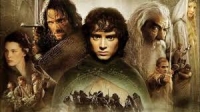
The Lord of the Rings: The Fellowship of the Ring is a 2001 epic fantasy adventure film directed by Peter Jackson, based on the 1954 novel The Fellowship of the Ring, the first volume of J. R. R. Tolkien's The Lord of the Rings. The film is the first installment in The Lord of the Rings trilogy. It was produced by Barrie M. Osborne, Jackson, Fran Walsh and Tim Sanders, and written by Walsh, Philippa Boyens and Jackson. The film features an ensemble cast including Elijah Wood, Ian McKellen, Liv Tyler, Viggo Mortensen, Sean Astin, Cate Blanchett, John Rhys-Davies, Billy Boyd, Dominic Monaghan, Orlando Bloom, Christopher Lee, Hugo Weaving, Sean Bean, Ian Holm, and Andy Serkis. It is followed by The Two Towers (2002) and The Return of the King (2003).
Zina Goldrich

Zina Goldrich (born 1964) is a musical theater composer. She is most known for her work with lyricist Marcy Heisler.
Goldrich and Heisler are currently working on the musical adaptation of Ever After, (the Drew Barrymore Cinderella movie produced by 20th Century Fox) which was scheduled to have its world premiere at the Curran Theatre in San Francisco in November 2009, but has been indefinitely postponed.
The duo has performed at Carnegie Hall, Birdland, and other venues including the Kennedy Center in Washington D.C. Goldrich and Heisler wrote the Off-Broadway show, Junie B. Jones, a musical version of the popular character created by author Barbara Park, produced by Theatreworks USA, which received a 2005 Lucille Lortel Award nomination for Outstanding Musical. An expanded version of the musical was staged in late 2005 at the Lucille Lortel theater; both the original and expanded productions received reviews in The New York Times.
"Taylor the Latte Boy", the Goldrich & Heisler song associated with Kristin Chenoweth—who sang "Taylor" on The Rosie O'Donnell Show and The Late Late Show as well as at the Metropolitan Opera House—has also been performed by other singers including Susan Egan and John Tartaglia. They also wrote the cult-hit "Alto's Lament" which is a song about a soprano who always gets stuck singing the alto parts.
Zina has played the keyboards in Broadway orchestra pits, including Avenue Q, Oklahoma!, Bombay Dreams, Grand Hotel and conducted at Titanic. With Marcy Heisler, she has written songs for the Disney characters, Winnie the Pooh, Timon and Poomba; they are also contributors to the Disney Channel's Johnny and the Sprites. She currently composes for Wonderpets on Nickelodeon.
Goldrich and Heisler are currently working on the musical adaptation of Ever After, (the Drew Barrymore Cinderella movie produced by 20th Century Fox) which was scheduled to have its world premiere at the Curran Theatre in San Francisco in November 2009, but has been indefinitely postponed.
The duo has performed at Carnegie Hall, Birdland, and other venues including the Kennedy Center in Washington D.C. Goldrich and Heisler wrote the Off-Broadway show, Junie B. Jones, a musical version of the popular character created by author Barbara Park, produced by Theatreworks USA, which received a 2005 Lucille Lortel Award nomination for Outstanding Musical. An expanded version of the musical was staged in late 2005 at the Lucille Lortel theater; both the original and expanded productions received reviews in The New York Times.
"Taylor the Latte Boy", the Goldrich & Heisler song associated with Kristin Chenoweth—who sang "Taylor" on The Rosie O'Donnell Show and The Late Late Show as well as at the Metropolitan Opera House—has also been performed by other singers including Susan Egan and John Tartaglia. They also wrote the cult-hit "Alto's Lament" which is a song about a soprano who always gets stuck singing the alto parts.
Zina has played the keyboards in Broadway orchestra pits, including Avenue Q, Oklahoma!, Bombay Dreams, Grand Hotel and conducted at Titanic. With Marcy Heisler, she has written songs for the Disney characters, Winnie the Pooh, Timon and Poomba; they are also contributors to the Disney Channel's Johnny and the Sprites. She currently composes for Wonderpets on Nickelodeon.
SS501

SS501 (pronounced as Double-S 501 in Korean) is a South Korean boyband under management of Daesung Entertainment, also known as DSP Entertainment. The name of the band is a combination of the alphabet and numbers that have special meanings in them. The first “S” stands for “Super”. The second “S” is an abbreviation for "Star". The number 5,0 and 1 means "five members united as one forever".
 Sheets Daily is a daily updated site for those who wants to access popular free sheet music easily,
letting them download the sheet music for free for trial purposes.
It's completely free to download and try the listed sheet music, but you have to delete the files after 24 hours of trial.
Don't forget, if you like the piece of music you have just learned playing,
treat the artist with respect, and go buy the original sheet music.
Sheets Daily is a daily updated site for those who wants to access popular free sheet music easily,
letting them download the sheet music for free for trial purposes.
It's completely free to download and try the listed sheet music, but you have to delete the files after 24 hours of trial.
Don't forget, if you like the piece of music you have just learned playing,
treat the artist with respect, and go buy the original sheet music.
